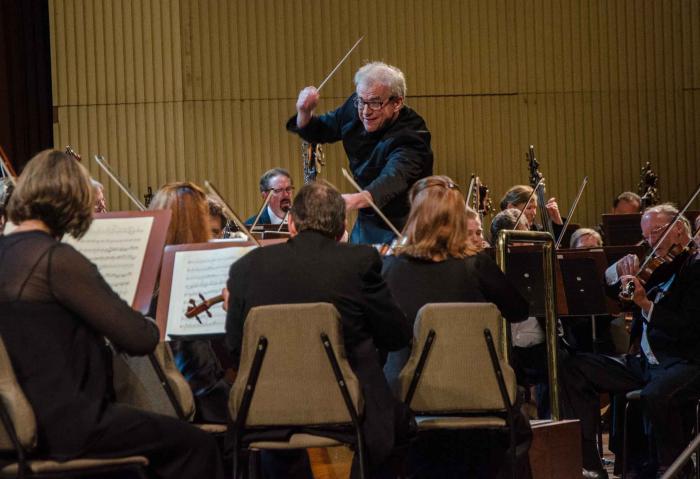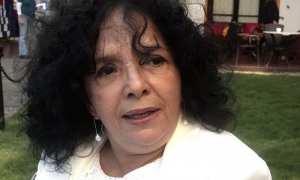TWO and a half hours of Beethoven in the National Theater’s Avellaneda Hall (May 16) once again demonstrated why the great Cuban pianist Frank Fernández insists that “music cleanses the soul,” and Finnish conductor Osmo Vanska declares, “Music knows no borders and makes life more beautiful.”

The Minnesota Symphony Orchestra led by Vanska, returned to Cuba 85 years after its debut here, and, to recall that event, performed three pieces by the extraordinary Ludwig van Beethoven.
The symphony opened Cubadisco’s gala inauguration with theEgmont Overture, Opus 84, and the powerful performance made clear that much was yet to come.
Listed second on the program was none other than Fantasia in C minor for piano,choir and orchestra, Opus 80, which music-lovers know as one of Beethoven’s most singular works.
Frank Fernández was welcomed with the first ovation of the evening, in honor of his virtuoso performance and the emotion he delivered during the introduction, which was magical for the orchestra and the choir, a joint effort of Digna Guerra’s Coro Nacional and Corina Campos’ Vocal Leo, whose harmony belied the surprising reality that they had rehearsed together just once.
The packed Avellaneda literally erupted with applause and exclamations at the conclusion of the performance, but after a brief intermission, the Minnesota Symphony returned for another tour de force: Beethoven’s Third Symphony in E-flat, Opus 55, better known as the Eroica, a legendary piece which many believe was originally dedicated to Napoleon Bonaparte, with the composer abruptly changing the name of the piece after Napoleon declared himself emperor.
The magnificent U.S. musicians met all expectations, and the audience responded by summoning the conductor to the stage five times. Vanska finally acquiesced and presented an unscheduled special gift, a polka from his native country of Finland.
It was a full evening of music allegro con brio, just as Fernández and Vanska had promised during the press conference held, days prior to the concert, in the Hotel Cohiba’s Havana Café.
Frank Fernández expressed his great pleasure with the fact that Cubadisco was being inaugurated with a concert featuring classical music, “which is not customarily prioritized in the recording world,” he said.
Sharing his knowledge of Beethoven’s work, Fernández commented on Fantasía, “It is the only one he wrote for piano, choir and orchestra. He wrote a great deal for piano, I could cite five concertos for piano and orchestra, 32 solo piano sonatas, while he used choirs in some choral works and the masterpiece that is the Ninth Symphony, which would have been enough for him to go down in history.”
“Performing Fantasia,”he said, “has an extraordinary spiritual connotation. I premiered it in Cuba in 1963, when I was 19, and now I’m 71. It’s beautiful, and I feel a similar emotion. That is why I say art transcends the ages, the distances, the stages; it is something extraordinary that cleanses the soul, and for me, the only option we have to achieve the peace we so much need.”
Coupling an orchestra with a guest pianist, and a new choir, with more than 100 musicians on the stage for a work like Fantasia, is no easy task, but Maestro Vanska told Granma International, “The common point is precisely our love for Beethoven, and delivering this sentiment to the audience.”
Vanska explained how the second program was developed, saying, “We didn’t want it to be something typical for the orchestra, but rather something that would bring us closer to the audience. We chose some selections from Leonard Bernstein’s West Side Story, and Sergei Prokofiev’s Romeo and Juliet, because we know ballet is very important in Cuba. We also sought a Cuban piece and came up with a danzón by Alejandro Garcia Caturla, an important work.”
Vanska wanted to emphasize to Cubans that the invitation extended to the Minnesota Symphony was an honor, adding “We consider our coming timely, after the conversations between our Presidents. We are proud to be back in Cuba. Much has changed since the first visit, but something which has not changed is our relation with friendly Cuban audiences and the artists. We are united by music which knows no borders and makes life more beautiful.”






